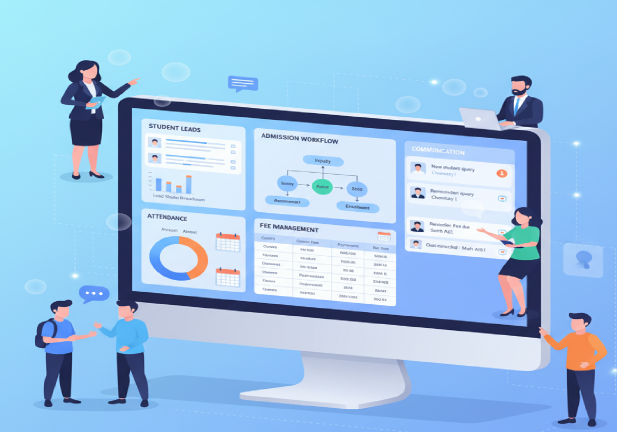Choosing the correct methodology for a software development project can have a significant impact on the success or failure of the project. The most well-known methodologies in the software development world are Agile (or Continuous Integration) and Waterfall (or Continuous Deployment). Each of these methodologies has its own unique set of benefits and drawbacks, making the decision between the two to be crucial for a development team. This blog post will explore the key distinctions between the two methodologies and provide guidance on which one is most suitable for a particular project.
Understanding Agile Methodology
Agile is an agile and flexible approach to development that emphasizes iteration and incremental workflows. It was developed in response to the inadequacies of the conventional Waterfall approach. Agile projects are typically broken down into smaller, more manageable chunks known as sprints or iterations. Each sprint typically takes between two and four weeks to complete, with a small portion of the project being completed each time.
Agiles flexibility is one of its defining characteristics. It enables changes and enhancements to be implemented throughout the entire development cycle, even when a project is in its infancy. Teams in Agile often work in collaboration with stakeholders and end-user stakeholders to collect feedback and make necessary adjustments. This ongoing feedback loop is a major contributor to Agiles reputation for customer satisfaction and quality.
Advantages of Agile Methodology
- Flexibility: Agile is able to adapt to any stage of the project, making it suitable for projects where needs are evolving.
- Customer focus: Agile prioritizes customer feedback and engagement, ensuring that the final product matches the needs of the user.
- Quality: Frequent and validated testing at run time helps identify and address problems early, resulting in a quality end product.
- Quick time to market: Agile’s iterative approach allows for rapid delivery of partial activities, making it ideal for projects with tight timelines.
- Effective teamwork: Agile encourages cross-functional teamwork, increases communication and collaboration among project team members.
Exploring Waterfall Methodology
Waterfall methodology is an established and sequential methodology for software development. The Waterfall methodology divides the project into its various phases. Phases include Requirements, Design, Implementation, Testing, and Maintenance. Phases must be completed prior to progressing to the next phase, and there is limited scope for iteration or change once a phase commences.
Advantages of Waterfall Methodology
- Clear project scope: A detailed project plan and well-defined requirements are already needed for the watershed, in order to clarify and structure the development process.
- Predictability of Timing and Budget: Due to the sequential nature of waterfalls, they are often associated with a predictable timetable and budget.
- Documented practice: Waterfall relies heavily on documentation, which can be valuable for strict business compliance or regulatory requirements.
- Less client involvement: For some projects, less client involvement can be an advantage, as it reduces the risk of scope creep.
Choosing the Right Methodology
Now that we have an in-depth knowledge of the Agile methodology and the Waterfall methodology, let’s look at how to select the appropriate one for your project.
Consider the Nature of Your Project
- Project challenges: Agile is best suited for complex, long-term projects with evolving requirements. Waterfall can work well for simple and well-defined projects.
- Customer Involvement: If your process requires frequent customer feedback and collaboration, Agile is the way to go. However, if minimal customer involvement is desired, waterfalls may be more appropriate.
- Compliance: For projects with strict regulatory or compliance requirements, a paper-heavy approach to erosion control can be beneficial.
Assess Your Team and Resources
It is important to assess the familiarity of the team with each methodology, as Agile often necessitates a more flexible approach and a greater level of collaboration. Additionally, it is essential to assess the resources available, particularly if the project has a tight timeline, as Agiles gradual delivery approach may be more appropriate for projects that are limited in resources.
Analyse Project Risks
Agiles adaptability to changing requirements can be beneficial for projects that are prone to frequent changes. On the other hand, Waterfalls stability and predictability may be more suitable for projects with limited budgets and timeframes.
Blend Methodology If Necessary
In certain circumstances, an Agile-Waterfall hybrid approach may be the most suitable solution. This approach is commonly referred to as "water-scrum-fall" or "agile-waterfall hybrid". This approach allows for prior planning and documentation (waterfall) while still incorporating Agile principles such as iterative development and client feedback.
Conclusion
The selection of an Agile or Waterfall methodology is not a monolithic choice. Both have their own advantages and disadvantages that make them more appropriate for particular project types and conditions. It is essential to thoroughly assess the nature of the project, the capabilities of the team, and the degree of customer engagement needed before making a choice.
In the software development world, adaptability and flexibility are essential for success. Do not hesitate to modify your approach as projects progress, and be willing to consider a hybrid methodology if it offers the best combination of both approaches for your specific circumstances. The correct choice will ultimately depend on your individual project needs and limitations.











.jpg)
